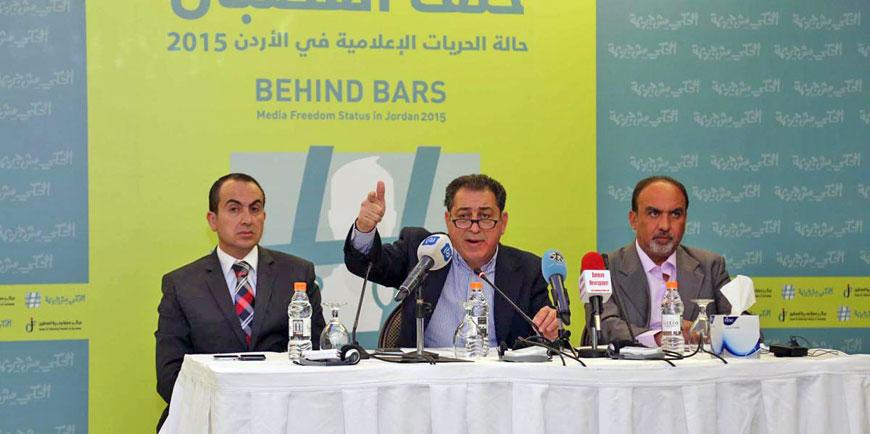You are here
Banning cyber terrorism is not ‘suppression’ — gov’t
By Mohammad Ghazal - Dec 10,2014 - Last updated at Dec 10,2014
AMMAN — Jordan enjoyed partly free Internet access in 2014, according to an international report, which indicated that Jordanians’ freedom on the net regressed by two points compared to last year.
However, the government responded by asserting that enacting laws to fight terrorist ideologies should not be seen as a form of freedom suppression.
The Freedom on the Net 2014 report, issued by Freedom House, showed that freedom on the Internet in Jordan rose to 48 per cent in 2014 compared to 46 per cent in 2013 and 45 per cent in 2012.
The lower the percentage, the better freedom is on a scale of 100 per cent, according to authors.
The report, posted recently on Freedom House website, said the Anti-Terrorism Law that was passed in April 2014 “broadens the definition of terrorism in a way that threatens free speech and may be used to prosecute users and online journalists for anything broadly interpreted as damaging to Jordan’s relations with foreign governments”.
In Jordan, there are restrictions on some online content, the report added, noting that the blockage of 291 news websites in the country for failing to comply with the recently amended Press and Publications Law is one of the restrictions that limit free Internet.
Minister of State for Media Affairs and Communications Mohammad Momani told The Jordan Times that freedom on the Internet in Jordan is protected.
However, Momani said that using the Internet to promote and recruit for terrorist groups is illegal as the case is in most democratic counties.
The report, which indicated that Internet access was first provided to Jordanians in 1995, showed that prices to connect to the service have decreased but complaints about the quality of services persist.
Social media applications such as Facebook, the micro-blogging service Twitter and the video-sharing site YouTube are very popular, particularly among younger Jordanians, it added.
There are over two million Facebook users in Jordan, representing over one-third of the country’s population, with a penetration rate of 47.9 per cent of the population as of May 2014, of whom 59 per cent are male. Twitter has garnered a much smaller following of around 161,000 users, or around 2.4 per cent of the population, according to the document.
Commenting on the report, Jawad Abbassi, chairman of the ICT Association of int@j, said: “There is a drop in freedom on the Internet due to the indirect restrictions by some legislation.”
“Blocking websites is illogical. The Press and Publications Law makes it mandatory for websites to have a chief editor who is a member of the Jordan Press Association and to become a member in the syndicate is a difficult process. This is a restriction on the freedom of the Internet,” he said over the phone on Wednesday.
Regarding the Anti-Terrorism Law, Abbassi said it is crucial to make sure that there is sufficient evidence when accusing someone of misusing the Internet to promote terrorism, for example.
“What is illegal offline is illegal online. People need to be aware of this. It does not mean that when online a person has no controls and can say anything and cast accusations in all directions,” said Abbassi.
Related Articles
The North Atlantic Treaty Organisation (NATO) announced a project over the weekend to help Jordan fend off any possible cyber threat by the Islamic State (IS), which the ICT Association of Jordan (int@j) labelled as crucial to protecting vital infrastructure in the country.
AMMAN — Ten Jordanian journalists were detained last year under the Anti-Terrorism Law and the Electronic Crimes Law, while the total violat
AMMAN — Jordan was ranked 145th out of 199 countries in Freedom House’s “Freedom of the Press 2016” report, maintaining the same level of la


















